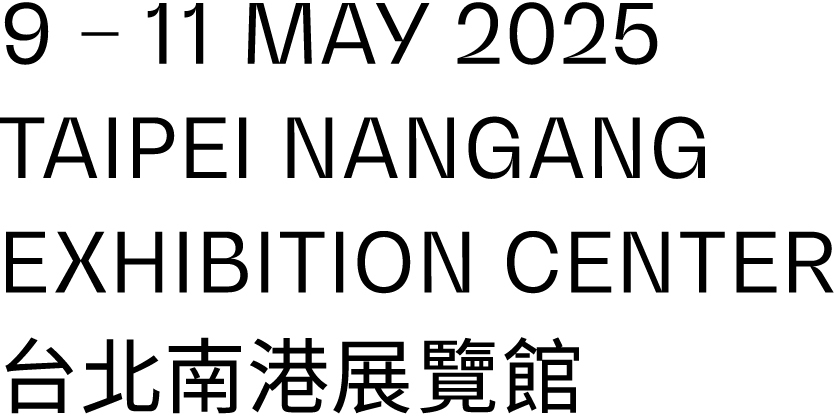We use cookies to ensure that we give you the best experience on our website. You can view our privacy policy by clicking the following links Privacy Policy Cookie Policy
Eddied Summary: The Extraterritorial Ideas Forum
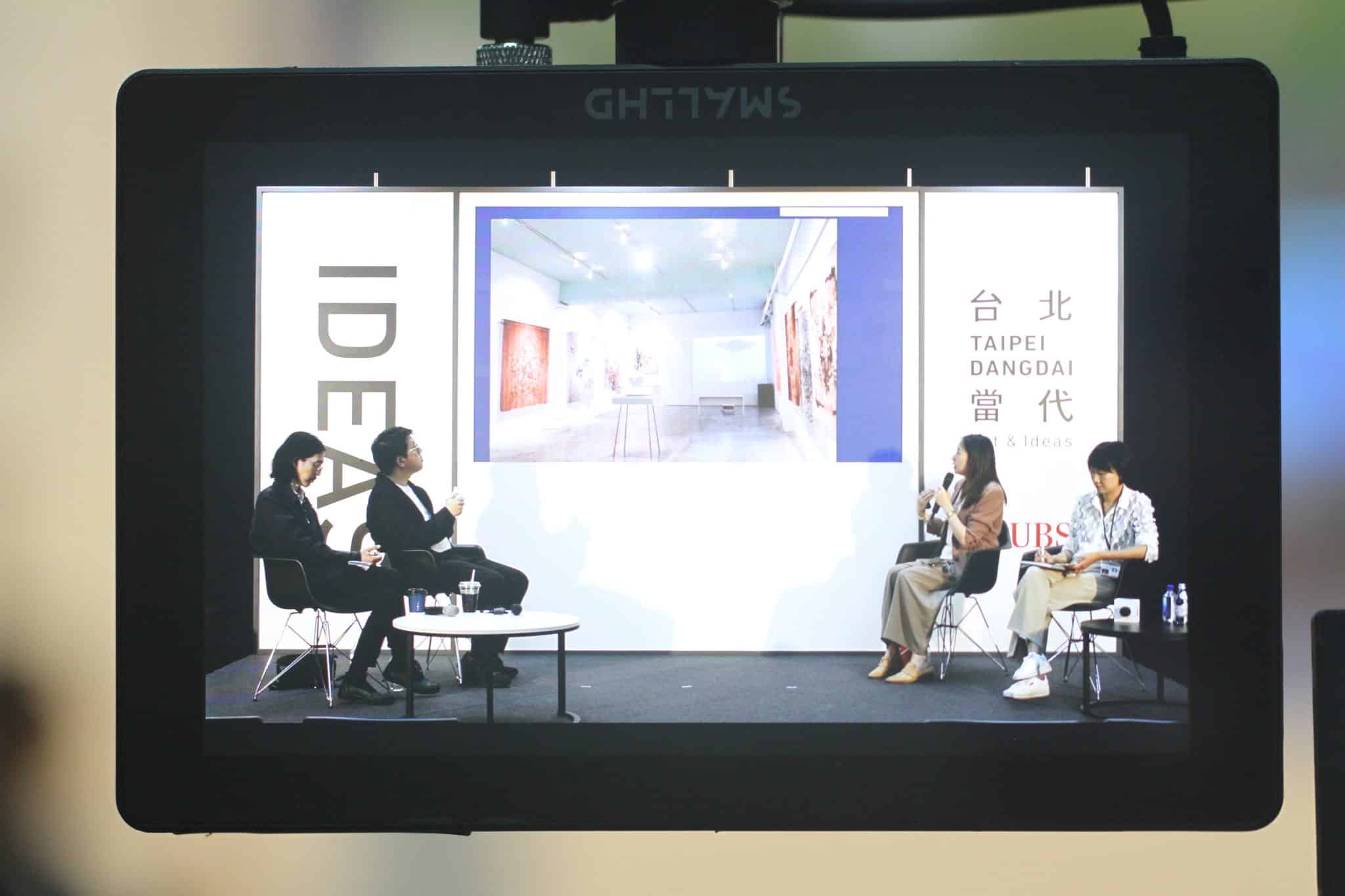
by/through Renyu, Forum Editor
Mzystudio.com
With the curiosity of what might entail in the ‘extraterrestrial’, and knowing no one except Shih-Yu, who loves dinosaurs, I stepped into the conference room to find out more. I was briefed to capture quotes and write up a summary for the 2023 edition of Taipei Dangdai Ideas Forum. Only until the second day did I realize the title of the forum was ‘extra-territorial’ not ‘extra-terrestrial’ that I had previously perceived. Territorial is a confronting word, however, how to be extra-territorial, retaining yourself at the same time being more than that, are interesting.
‘The Extraterritorial’ Ideas Forum brings nine international curators to Taiwan and seven local curators to share their work from the cutting edge of art today. Touching on issues of ‘region’ and ‘cultural belonging’, exceptional questions, such as ‘how do we make terms such as “regionalism” transformative?’ posed by David Teh, and ‘what is the substance of your diasporic experience?’ by Chih-Ya-Chun help audiences, and interlocutors navigate and anchor embodied and metaphysical materiality.
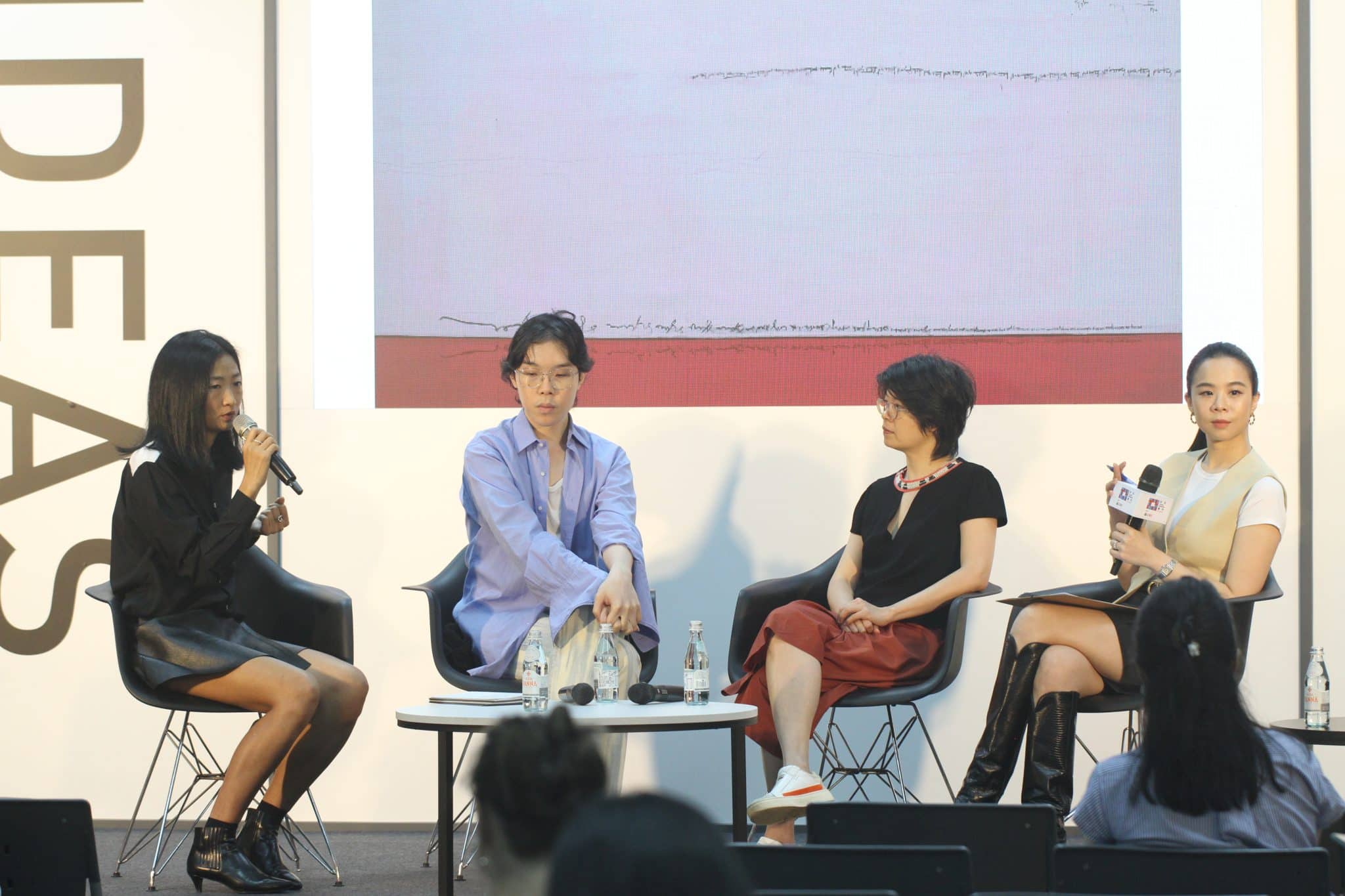
▍Ways of Living, Loving & Curating
‘Everyone has a different set of tools to experience the exhibition. Live art is a way to explore the link between history and the present.’
— Xue Tan, Trust & Confusion – Responsive Exhibition Making
‘Workshop offers a channel to turn knowledge into sensible relationships. Where artworks are not merely objects, but opportunities for forging bounds with the audiences.’
— Esther Lu, Re-channeling Knowledge Production in Art: From the Curatorial to the Collective
New generation of curators are finding ways to engage the audiences and knowledge production, to shift the paradigms of artistic discourse with emancipatory possibilities. Apt in the fair setting, ‘Third Date’ speaker Wong Binghao approaches art essayistically, constellating emotionally available readings and experiences of art in the hope of building more emancipatory and ethical worlds. I seemed to overhear a quote ‘what is exciting about the festival is the presence’, together with the above mentioned approaches by Xue Tan and Esther Lu, they make me see workshops, guided tours, activities, which are already abundant practices in the Taipei Dangdai fair, in a different light. May the excitement of riding on the elevator and entering the front gate, meandering amongst different exhibitors, booths and artworks, be a chance for reflecting on our collective becoming? Unexpected dialogues and bonds await. Can these help us become better critters and ethical scavengers in the world?
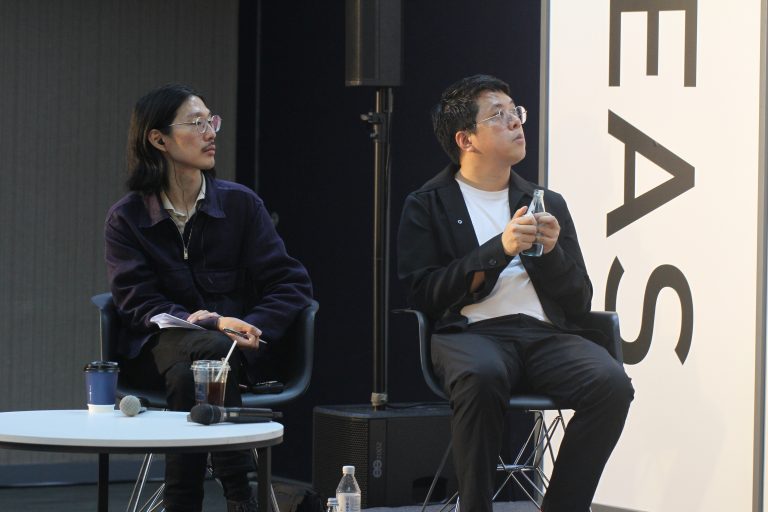
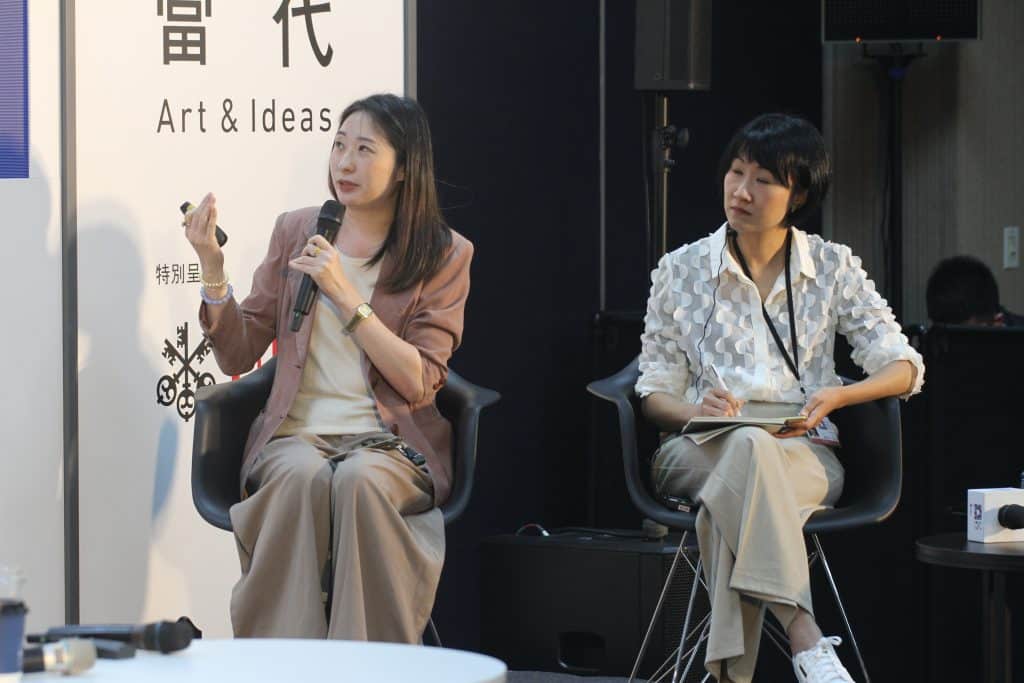
▍Animating aeons
‘To push against the idea of chronology, challenge the linearity of before and after death.’
— Jo-ey Tang, arms ache avid aeon: Nancy Brooks Brody / Joy Episalla / Zoe Leonard / Carrie Yamaoka : fierce pussy amplified
‘Parasite refuses master time, hopping through different entities, circling around. Beijing, Shanghai, Hong Kong…’
—— Billy Tang, Maneuvering Criticality: parasitical tactics and other interventions
‘We invited artists to nominate female artists for the Wikipedia Hackthron. Margaret Shiu was nominated by WANG Pei-Hsuan. Margaret Shiu passed away in 2021, but her wikipedia page still has many edits until now. We didn’t expect that while making the exhibition.’
——Shih-Yu Hsu, Futurist Statement to lám-nuā
Moderated by Janet Fang, Curator of Yuguang Island Art Festival, the 2nd session delves into the animating questions of scale, temporarity, human and non-human.
fierce pussy was founded in 1991, met through AIDS activism. Jo-ey Tang pushes against institutional parameters set against curators, and challenges exhibition as the end goal. Their collaboration started from 2015 ongoing, circulating from Philadelphia (ICA) to Palais de Tokyo, Paris and back to New York streets. Almost as the fifth member of the collective, claiming derogative language, making visible the words used in our daily lives, through aeon(time), Jo-ey speaks of many fierce poems and examples, including ‘If he is still alive today, what pronouns would he use today?’
As a long time friend with Jo-ey Tang and collaborator of ‘MORE THAN LOVERS, MORE THAN FRIENDS’ exhibition on imaginary friends, Billy Tang opens up that he almost wanted to name his presentation as Laundering Criticality. Maneuvering through impossibilities of space and political climate through parasitical tactics, he provisioned a website as a bridge between languages as one of the examples.
Language is a common theme among these three speakers. Threading together the non linearity of before and after death with coincidences, Shih-yu Hsu translates the imbalance of gender representation on Wikipedia to ways of cultivating admiration for others in Female Avatars’ Futurist Statement. This care also translates into lám-nuā reading group and Taiwan International Video Art open call at Hong-gah Museum.
Language as sites of specificity, Janet Fang acknowledges how they confront frameworks at the same time of growing methods for practices. I wonder when the weary exhibition temporarity, five times a year, ten times a year, and choreography of scales, are no longer stunts? I listen to these conversations and think how they might gently push the future towards more interesting and speculative constellations.
Janet Fang: what would non-human-centric curation like?
Shih-yu Hsu: The subjectivity of objects is an interesting issue. Female Avatars’ Futurist Statement crosses boundaries, art is the best instrument to open up human sensibility and boundaries. But you have to take unknowability into account while dealing with non-human. You can’t fully understand things other than yourself. So to talk about trans species issues might be too aggressive. That’s why we return to ‘care’ as a theme in TIVA.
Billy Tang: Due to the racism experienced while growing up, animism and affect has always interested me.
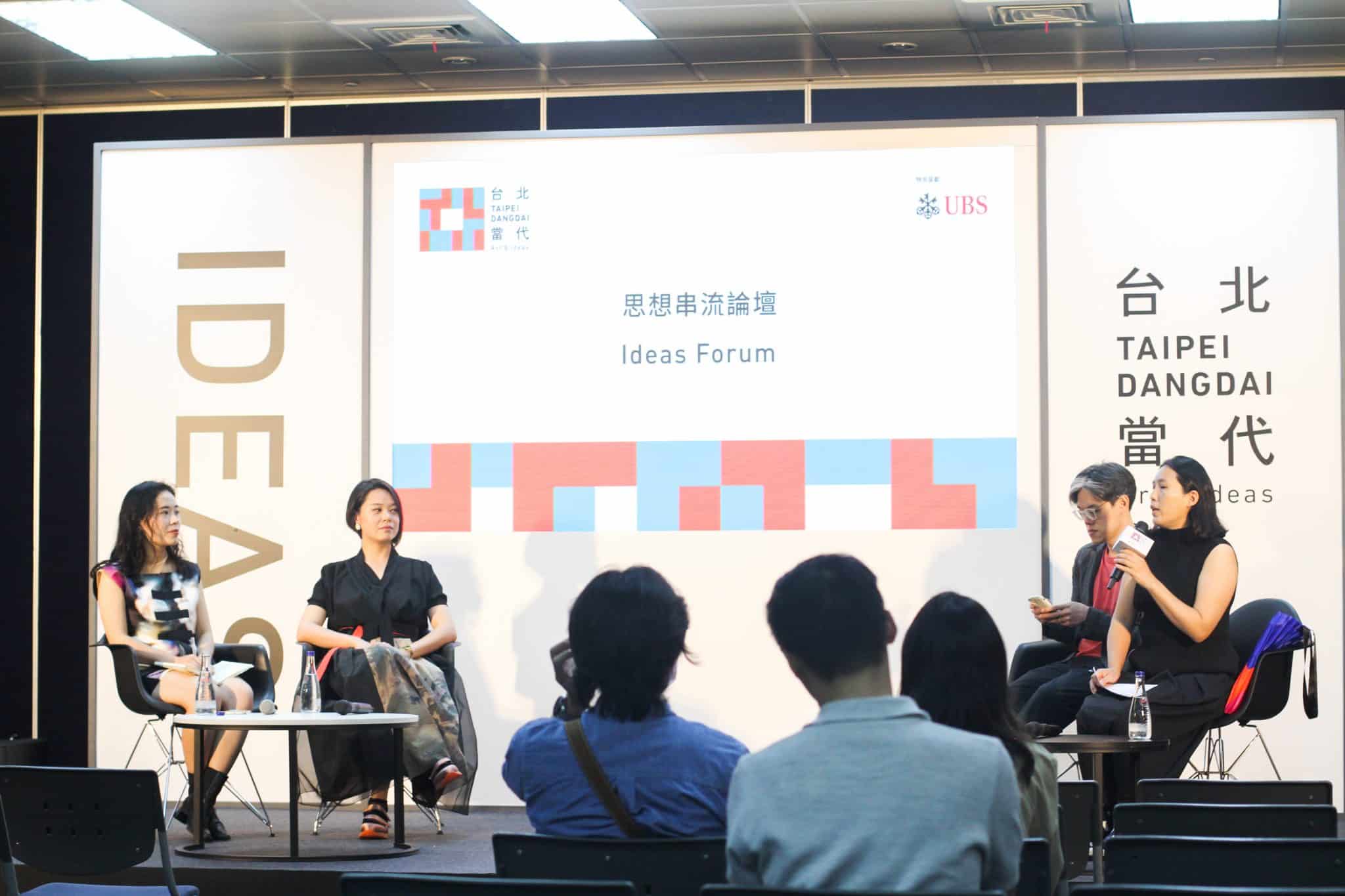
▍Finding economical and political gestures
‘While growing up being mocked just for double eyelids, I can empathize how Africans struggle in Korean society because they appear different.’
— Sun A Moon, Cold War and Capitalism; Promise of New Relationships
The second day of the Ideas Forum welcomed Hera Chan, Adjunct Curator at Tate Modern, SPACE AFROASIA director Sun A Moon and cinematic researcher Zian Chen on the hard topic of art and political economy.
Hera Chan presented a research project out of personal interest, inspired by 1997 financial crisis that impacted many Asian countries. Being aware of banks as systems of trust that proceed colonialism, she visits bank museums, films from popular culture, as well as artworks inspired by rap culture and crypto currency, to further reflect on the responsibility and accountability of working in an institution that has permanent collections.
Sun A Moon contextualizes how cold war migration created military towns around the periphery of Seoul. The dream of first generation Nigerian immigrant workers, who fill in the empty spaces left by the US Army, mostly work in factories but want to start their own business, help render the community art space. A music video co-produced by the community with lively African rhythm, accompany scenes of commuting on bus and wearing greased cotton gloves to carry things, might be the best way to demonstrate how she prefer to put research materials in catalogs, and always try to bring form to the exhibition, where people can figure out their own narratives.
Zian Chen worked with many artists on research for art projects. He examines traces of affect and political and economic turbulence in Taiwan’s New Wave cinema. Lee Hsing, previously overlooked director of Taiwanese dialect film, healthy realist film, and Chiung Yao literary romantic film, actually was massively popular among female textile factory workers. He also found 1920s docudrama that helped in abolishing child labor exploitation during a research trip to Shanghai’s textile factories. If we can observe closely to the technical and political conditions rendered in/through films and other sound visual representations, we might find a wealth of readily available approaches to these old questions.
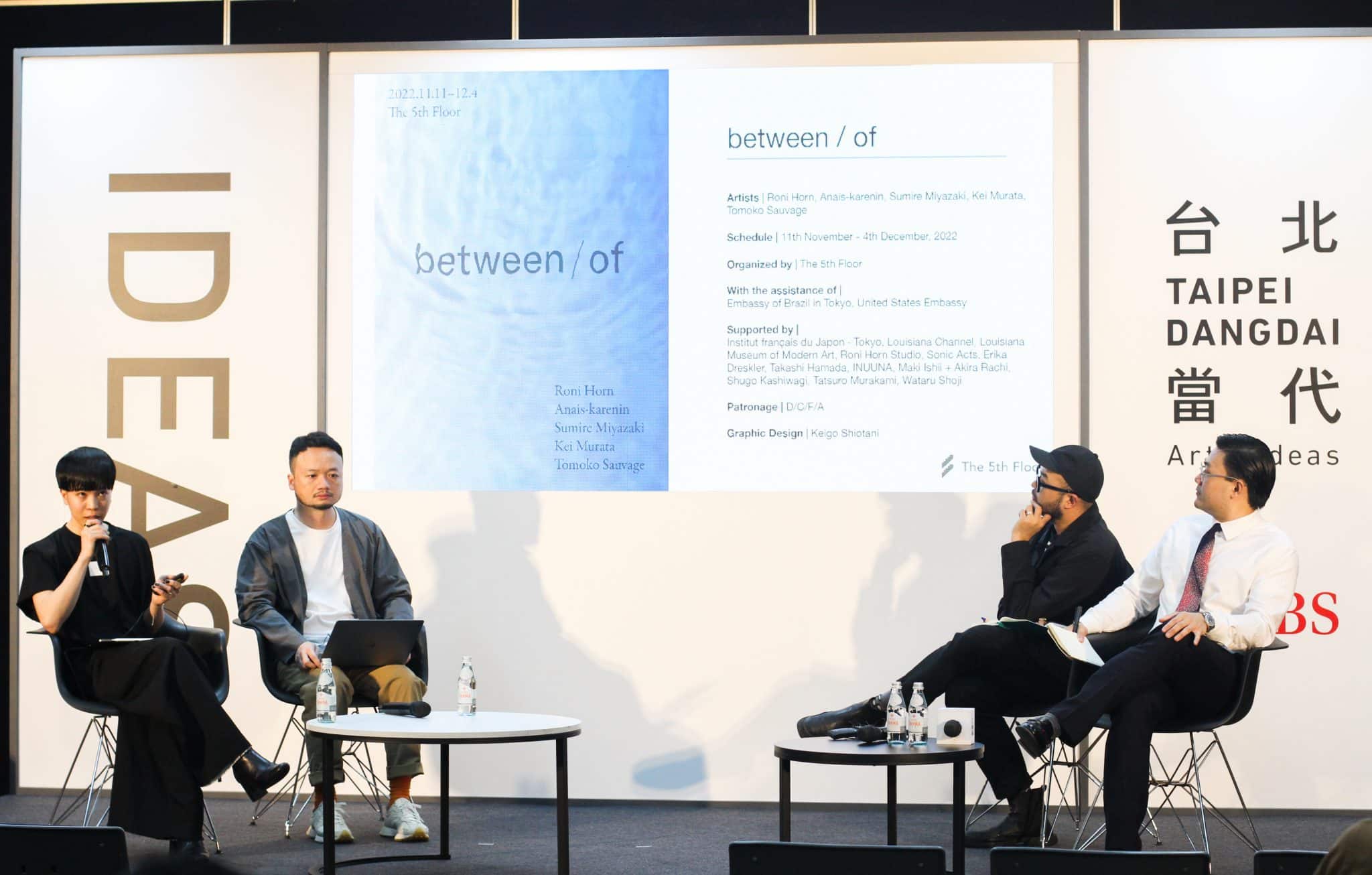
▍Infrastructural works for dancing through ecosystems
‘Exhibition spaces separate random public from viewers.’
—Tomoya Iwata, Alternative Art Scene in Tokyo: Place to Practice
‘From official competitions to open experimental platforms, with outdoor exhibitions and responsible art critics.’
— Hsieh Feng-Rong, The Governance of Urban Natures and Imagined Communities: From the 1990s Taipei County Exhibitions
‘Every joint and muscle are already ecosystems that work together.’
— River Lin, Dancing Ecosystems: Taipei Arts Festival in the post-pandemic era
The final day we had two energizing panels, with emerging, dancing, governing, critical, historian, ecological, heavy weight curators and thinkers.
Due to lack of study on alternative art spaces in Tokyo, Tomoya Iwata embarks on a journey to document these residential houses and warehouses that provide infrastructure for artists, and linking them together with alternative spaces from abroad. When asked by the moderator Alex Jen, how the commonality of water as a theme influenced their curatorial practices, Tomoya replied his recent contemplation on how to offer yourself to others through reading the work by Astrida Neimanis, and how to share responsibilities as collectives.
Hsieh Feng-Rong works for the inaugurating museum at New Taipei City. He demonstrates how government organized art events can be fairly radical. Through many artists’ efforts, official competitions became open experimental platforms, initiating responsible art critics schemes, and taking exhibitions outdoors in the river. Industrial pollution was also reflected in their artworks. While marginalized groups are gradually erased through gentrification, he thinks about how rivers and cities shape each other, and how art can be generative for more diverse and organic city landscapes.
How to curate at the age when everything, even bubble tea, can be festivalized? River Lin takes respite from Timothy Morton’s work ‘All Art is Ecological’ to reflect on his curatorial practice at Taipei Arts Festival and Taipei Performing Arts Center. He draws up a blueprint for the coming years. Fascinated with the ocean, he shares how to dance into the future as a performance artist working across the contexts of visual art, theater, and queer culture.
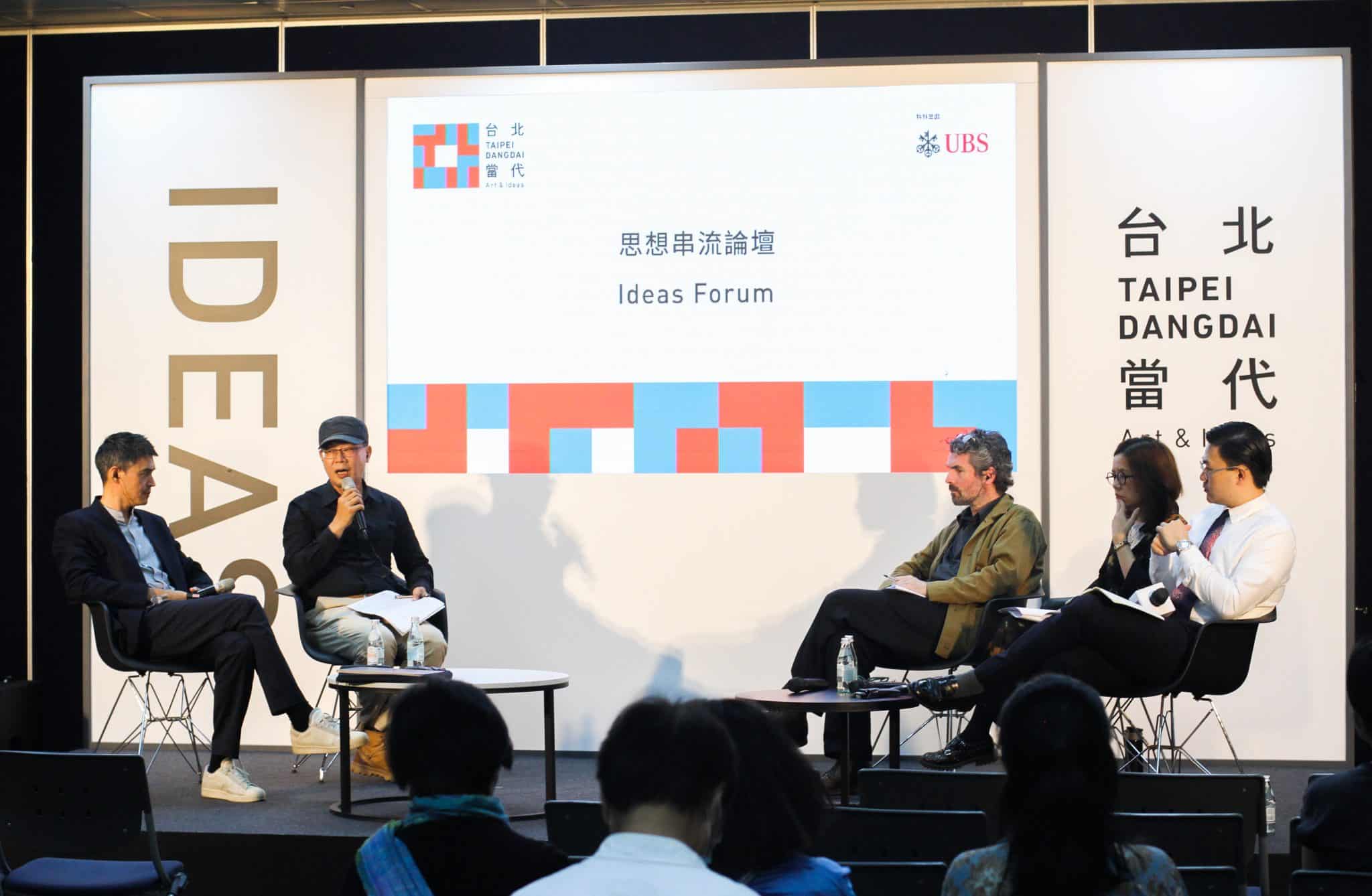
▍Transformative frameworks
‘Southeast Asia art is framed in certain ways, excluding artists who have more than two identities. How do we make these terms “regionalism” be transformative?’
— David Teh, Solid States, Liquid Imaginaries: Region with or without Nation
‘You can’t separate ecology from economy, especially in Japan. You need to reflect that in curatorial gestures.’
— Martin Germann, Relations between Matter and Man: Art and Ecology from the 1950s to the 1970s in Japan
‘Reflecting upon unbalanced relational aesthetics and experiential art hype as a way to bring transparency to the exhibition process, comes about “on the passage of a few persons through a brief moment in time.”’
—Jau-Lan Guo, Regional or Global: Designing a Display Framework for Creating Audiences
David Teh argues that ‘artist-to-artist regionalism’, where artists run on their own steam, more collective and grass-root, might help us to pull back from national narratives.
His conversation with Gong Jow-Jiun, Martin Germann and Jau-Lau Guo delves in and out of the histories of institutional conformity and discrimination. Love a work enough to defend them when shit happens is the responsibility missing in today’s art scene and reinstating the role of author is a wake up call for today’s aspiring curators.
Artist Talk Archive
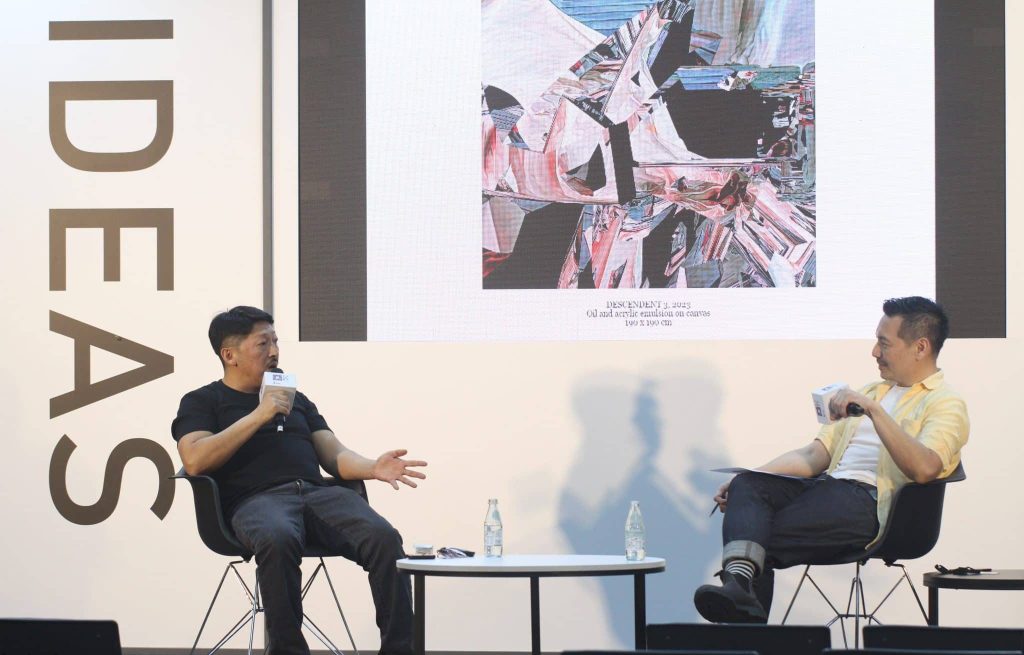
Jin Meyerson: Between Prediction and Prophecy
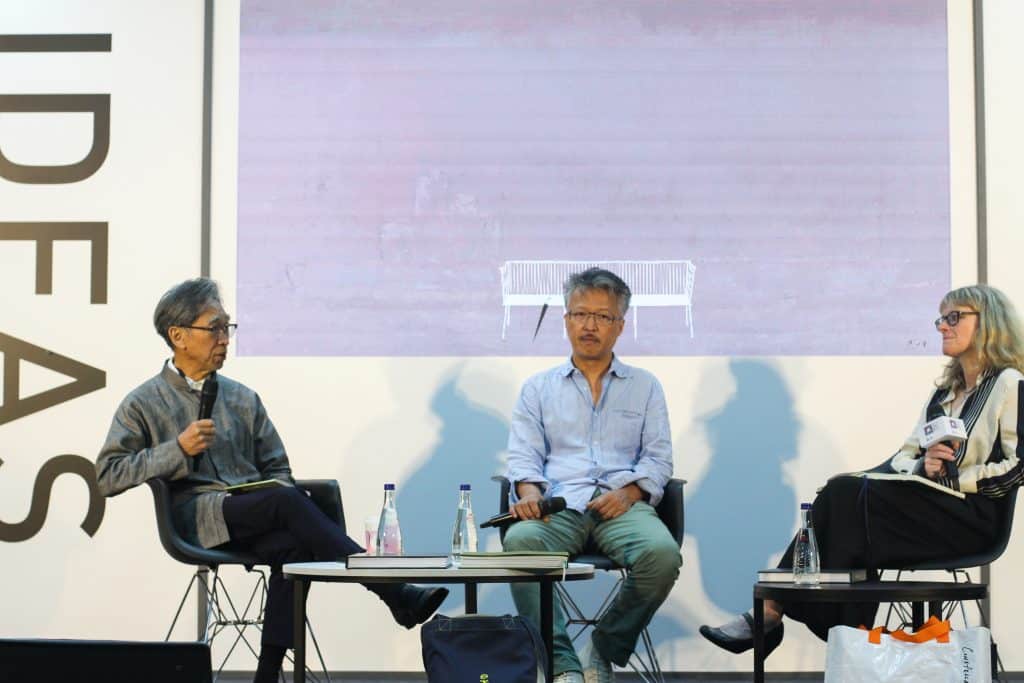
Constellations: Yeh Shih-Chiang and Yeh Wei-Li
A Conversation: One Story: Two Books
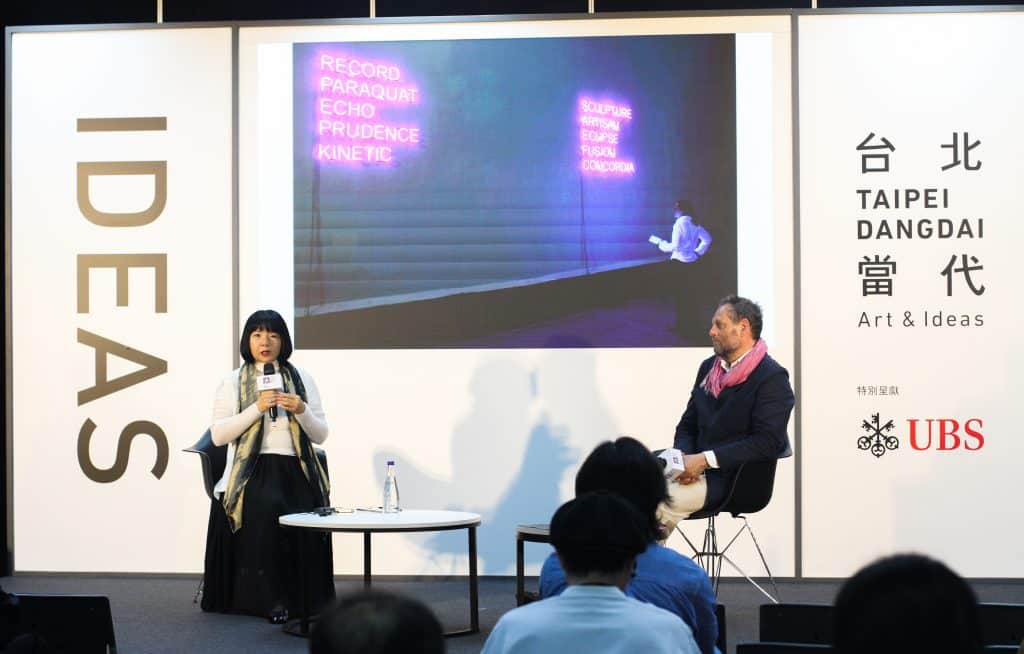
Tsherin Sherpa: Artist Talk
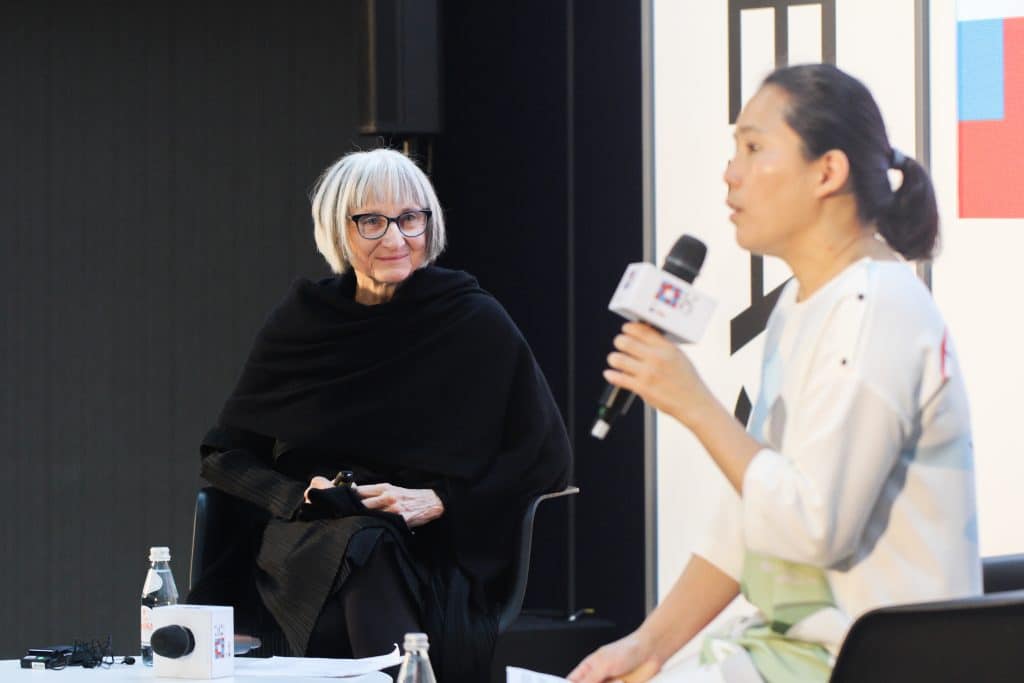
Petah Coyne: Artist Talk



